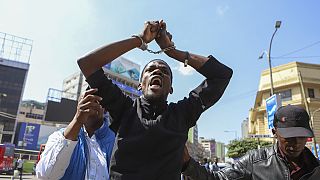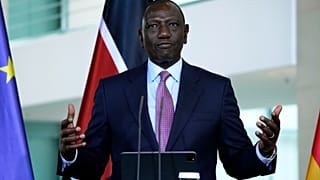Kenya
The vote of the controversial finance bill was marred by violence and resulted in loss of life and property.
This prompted the defense minister to deploy the army and President William Ruto to address the nation.
" Today's events marked a critical turning point on how we respond to grave threats to our national security. I assure the nation that the government has mobilized all resources at the nation's disposal to ensure that a situation of this nature will not recur again, at whatever cost."
Demonstrators reportedly tried to storm the State House in the western city of Nakuru and burned ruling party offices in Embu in central Kenya.
The Kenya Law Society President Faith Odhiambo said earlier Tuesday that 50 Kenyans, including her personal assistant, had been “abducted” by people believed to be police officers.
Some of those missing included those who were vocal in the demonstrations and were taken from their homes, workplaces and public spaces ahead of Tuesday's protests, according to civil society groups.
Police officials did not immediately return calls seeking comment. Parliament Speaker Moses Wetangula had directed the inspector general of police to provide information on the whereabouts of those reportedly abducted.
Is dialogue possible?
During the address of President William Ruto, he promised the Kenyan youth to provide a framework for a conversation to be processed and its outcomes implemented.
"However, our national conversations on any subject matter must be subjected conducted in a manner that respects and honours the foundational values upon which our nation is established : constitutionalism, the rule of law, and respect of institutions," he said.
The leader has two weeks to sign the controversial finance bill into law.
The chairperson of the African Union commission called Tuesday (Jun. 25)national stakeholders to engage in constructive dialogue.
His administration did drop some tax proposals from the bill last week but frustrations over the high cost of living remained.
In Nairobi, a regional hub for expatriates and home to a major United Nations complex, the inequality among Kenyans has sharpened along with long-held frustrations over state corruption.
Last year’s finance law introduced a 1.5% housing tax on gross income for salarid individuals and doubled the VAT tax on petroleum products from 8 to 16%.












Go to video
Cameroon post-election unrest: Protesters jailed, others freed
00:56
US signals major aid review over South Sudan governance 'failures'
00:03
Court suspends Kenya-U.S. $2.5 billion health cooperation deal
01:30
New Kenyan police contingent arrives in Haiti to combat gang violence
Go to video
Tanzania blocks independence day protests, calls them a ‘coup’
01:43
US-Kenya $2.5B health deal targets HIV, Malaria and Polio